
Snowbirds, Welcome Back to the Sunshine State!
Published October 2019
Editor’s Note: As snowbirds return from their summer abodes, FLCAJ sought out several community association service providers to find out what advice they have for these returning residents. The counsel touches on many important topics, so read, learn, make changes to community operations, and enjoy your stay in the Sunshine State!
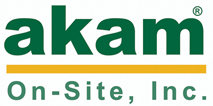 Consider These Recent Developments
Consider These Recent Developments
By Regan Marock
There have been several developments in the industry since you left at the beginning of the summer. Below are a few things to consider:
- Medical marijuana usage in associations has increased exponentially. Touch base with the association’s attorney about rules and regulations involving privacy and a reasonable course of action.
- Packages being ordered and delivered to associations continue to increase. Viable options are now available from a procedural standpoint that management can assist with.
- Unemployment is at its lowest since 1969. Coming into budget season, make sure to set aside funds for healthy employee raises. Employee turnover is more costly.
- Water efficiency is vital for the environment and the budget. Speak with management regarding new technologies that conserve water usage and create major financial savings.
- Hurricane season does not end until November 30th, so be sure management has an action plan for the worst-case scenario.
For more information on AKAM On-Site, email rmarock@akam.com, call (954) 843-2526, or visit akamonsite.com.
 FOUR Options to Fund the Costs of Capital Improvement Projects
FOUR Options to Fund the Costs of Capital Improvement Projects
By Lisa Elkan, VP and Association Financial Partner
As an association is contemplating repairs on its buildings whether it be for concrete restoration, elevator modernization, and the list goes on…The question is, how may an association pay for these repairs?
- The cheapest and easiest way for an association to pay for the repairs is to simply write a check.
- If the association has the luxury of being able to wait to complete the repairs, they may wait/stage the repairs over several years.
- If you think owners will be upset when the annual assessment is raised, imagine how they’ll feel when you are required to pass a special assessment.
- Pass a special assessment combined with an association loan—When an association takes out an association loan in conjunction with a special assessment, the owners will now have the ability to pay the special assessment over a longer period of time, while the association is able to complete the repairs right away.
For more information on Alliance Association Bank, call (888) 734-4567 or visit www.allianceassociationbank.com.
 Schedule a “Fluff” Day Due to Rain
Schedule a “Fluff” Day Due to Rain
By Connie Lorenz
I think it is safe to say that we have had enough rain this summer! Unfortunately, Florida rains often continue into the fall. When scheduling, include a “fluff” day in your schedule to allow for this. Remember, it is best to add weather-related missed areas to the next day. Inconveniencing your residents may prevent the headache for everyone with a contractor not returning for weeks to finish up any remaining areas. Those weeks waiting for the contractor to come back can be painful for all.
Contractors often schedule their projects well in advance, so they are just as frustrated by bad weather. Everyone wants the same thing: a project completed right, and in a timely manner. Working with an experienced consultant will relieve much of the pressure that can come with even the simplest of projects. When it comes to your pavement projects, we’ve got you covered!
For more information on Asphalt Restoration Technology Systems, call (800) 254-4732 or visit www.asphaltnews.com.
 Do You Have a Current, Accurate Reserve Schedule?
Do You Have a Current, Accurate Reserve Schedule?
By Will Simons, RS
Welcome home! October usually means it’s probably about time for your association’s budget to be finalized in advance of the upcoming fiscal year. Hopefully, that means you have a current, accurate reserve schedule that you can use to ensure your community is adequately funding its reserve accounts. If you don’t, we’re here to help! If you’re still hoping to squeeze in the funding recommendations for 2020, please give us a call to explore your options for completing a reserve study this fall. However, if you’re running out of time, not to worry! You can get a great head-start on NEXT year’s budget process by scheduling a reserve study for early in the upcoming year. As always, thank you very much, and welcome back to paradise!
Give us a call at (954) 210-7925 to learn more about our “Smart Start” program or visit our website at www.ReserveStudy.com to submit a request for proposal.
 Preparing for a Busy Fall Season
Preparing for a Busy Fall Season
By Lilliana M. Farinas-Sabogal
Because most association fiscal years and elections coincide with the end of the calendar year, preparations should be underway for a busy fall season. Here are a few tips to ease the process:
- Make a “to-do” list of needed repairs or maintenance for the upcoming year.
- Maintain and review up-to-date financial data throughout the year to make the budgeting process easier at the end of the year.
- Confirm unit owner rosters and account ledgers to make candidacy and voter eligibility determinations faster.
- Review what kinds of rules were broken most frequently in the past year and discuss better enforcement methods with your board and attorney.
- Send a newsletter to the owners describing all the projects/improvements accomplished during the year.
- Consider whether your documents need amendments and discuss with your attorney to include these in the annual meeting, where you are likely to get the most owner participation.
For more information on Becker, call (305) 351-1077, email lfarinas@beckerlawyers.com, or visit beckerlawyers.com.
 Roof Maintenance, A Great Investment!
Roof Maintenance, A Great Investment!
By Gregg Wallick
Have you ever asked yourself what the costliest building component of your facility is that, if neglected, could cause significant damage to the entire structure and contents and must be replaced periodically? Have you ever looked at your roof as a piece of equipment? Your roof is just like a piece of equipment that demands regular maintenance if it is going to protect the contents of the facility and last its projected life.
It is important to have a responsible person for each building’s roofing system. This person should be familiar with the roof system, roof warranty, required maintenance, and a qualified contractor to perform the required maintenance.
It has been my experience that properly installed roof systems which have periodic routine preventative maintenance performed can far exceed the estimated life expectancy.
Getting started on an annual program could be the soundest investment you can make, considering the replacement cost of your roof and the potential liability associated with consequential interior damages. If the owner doesn’t feel qualified to perform such inspections, they should contact a qualified contractor who does this type of work on a regular basis.
For more information on Best Roofing, call (954) 941-9111, email info@bestroofing.net, or visit www.bestroofing.net.
 Property Damage? Stake Your Claim!
Property Damage? Stake Your Claim!
By Amy D. Boggs, Esq.
Associations pay dearly for property insurance that they rarely use. Why? Property managers and boards often don’t realize that damage is covered by insurance, and they wind up using association funds for the repair. The board owes it to the association to explore coverage for any damage to the association’s property, so be proactive!
- Document damage and emergency work through photographs, receipts, and video.
- Don’t rely on the agent or the insurance company to tell you what is covered. You need professionals working for the benefit of the association, not the insurance company.
- Meet with a professional public adjuster or insurance attorney about insurance coverage before starting the repairs. Law firms like mine work on a contingent fee basis, so there is no fee to review your claim. Plus, we pay for the professional engineers and contractors needed to assess your claim. Don’t let your insurance go to waste—know your rights!
For more information on Boggs Law, call (727) 954-8833 or visit www.boggslawgroup.com.
 Getting a Preventive Maintenance Plan in Place at Your Community Association
Getting a Preventive Maintenance Plan in Place at Your Community Association
By Dan Tiernan
Now is a great time of year to get a preventive maintenance plan in place at your condominium or HOA. A proper preventive maintenance schedule will help you to stay organized and efficient when taking care of your community.
The first thing you should do at your property is to identify all the common elements that need to be maintained. Some of these
elements can be maintained by in-house staff, and others need to be maintained by outside professionals. It is also important to understand the frequency and scope of the preventive maintenance.
Common elements in a condominium that need to be maintained by outside professionals:
- Roofs
- Cooling towers
- Generators
- Gym equipment
- Alarm systems
Common elements in a condominium that can be maintained by in-house staff:
- Changing air filters for individual AC units
- Back-flushing individual AC units
- Touch-up painting in common areas
- Re-strapping of pool furniture
- Cleaning hallway carpets.
Common elements in an HOA that need to be maintained by an outside professional:
- Trees and other plantings
- Clubhouse AC and electrical systems
- Lakes
Common elements in an HOA that can be maintained by in-house staff:
- Pressure cleaning of pool area
- Changing clubhouse AC filters
- Machine cleaning of clubhouse carpets
- Touch-up painting in the clubhouse
- Minor fence repairs
For more information on Campbell Property Management, call (954) 427-8770 or visit www.CampbellMGT.com.
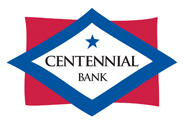 Consider Serving Your Community
Consider Serving Your Community
By Sheila McKenna
A large number of snowbirds own HOAs and condominiums in Florida. Their intention is to someday live here permanently. This season, why not consider running for the board? Most boards meet once a month, and if you are up north for the summer, you can still call in and participate. Associations are hungry for intelligent, responsible individuals to participate in the policy-making decisions for the community.
Most communities give a 60-day notice before the annual meeting that an election is going to take place. Candidates need to put in a written notice that they intend to run for the board 40 days prior to the election. Not quite ready to serve on a board? Try joining a committee. Everything from finance and elections to landscaping and painting committees are available, and it’s a great way to be involved in your community, meet some new people, and make an impact on your future home.
For more information on Centennial Bank, call (727) 333-4614, email smckenna@my100bank.com, or visit www.my100bank.com.
 Getting Involved in Your Community’s Association
Getting Involved in Your Community’s Association
By Dania S. Fernandez, Esq.
Welcome back to Florida! While we love our snowbirds, one of the biggest challenges we see is that our winter residents are too often underrepresented within their community association.
If you want to get more involved, there are three key steps:
- Start looking into the election process
- Research the requirements of the role
- Obtain the certifications that you need
If you are interested in making your community a better place, we are happy to help you navigate through the process. Feel free to give us a call with any questions you may have.
For more information on Dania S. Fernandez & Associates P.A. , call 305-254-4492, email dania@dsfpa.com, or visit www.daniafernandez.com.
 Tips to Prepare for a Worry-Free Winter
Tips to Prepare for a Worry-Free Winter
By Bryanna Stad
You’ve been gone all summer, leaving your property unsupervised. There are a few steps you can take to get your property back up and running properly:
- Roof Inspection—Your roof is the most crucial part of your building’s envelope. To prevent future damage and costs, schedule a roof inspection to ensure your roof is up to current codes and standards.
- Reserve Study—Stay ahead of the game and schedule a reserve study to determine the amount of funds required for future repair and replacement of common elements.
- Developer Transition Study—Your property has turned over from developer to association; now what? A developer transition study provides the association with information on any construction defects before turnover to ensure that your association starts off on the right foot.
For more information on Delta Engineering’s services, please contact our office at (941) 727-2600 or visit www.delta-engineers.com.
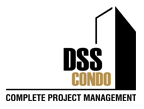 Creating a Request for Proposal
Creating a Request for Proposal
By Anna Brautigam
The return of snowbird board members often means getting your association’s projects moving
forward again. In order to prepare for any large or small project, your board first needs to understand the associated costs.
While statute and good practice require associations to obtain competitive bids for certain items, too often we rush the process, requesting proposals from multiple vendors, which arrive in different formats with varying pricing and scopes of work—making it impossible to compare bids or make a responsible decision.
In order to obtain apples to apples bids tailored to your association’s needs, we recommend creating and distributing an RFP (Request for Proposal). This written document will contain everything bidders need to know about your project, including specific details and instructions, and a uniform bid form for them to submit pricing. You can customize your RFP for any service or project your association needs, and you’ll find it will make the bidding and vendor-selection process easier and more transparent for your board and your unit owners.
To learn more about how to create an RFP for your projects, contact info@dsscondo.com.
 There Is Work to Be Done
There Is Work to Be Done
By Ed Williams, RRC
If you are a returning board member who has been away for the summer, then there is probably work to be done for the association. October is usually the time when budgets are prepared and finalized for the upcoming year.
- Was there a hurricane or other significant weather event that occurred while you were gone?
- Was there damage to the building, such as the roof, windows, or walls?
- Are there upcoming capital expenses that need to be addressed in the budget?
We think it’s always important to take stock annually of your buildings and infrastructure. As far as the roof is concerned—
- Do you know how long it will last and how much it will cost to replace?
- Is money being set aside annually for replacement?
- If not, is there money already in reserves, and is it enough?
If you don’t know the answers to these questions, maybe it’s time to ask a professional for help.
For more information on Ed Williams Registered Roof Consultant, call (772) 335-5832 or visit www.edwilliamsregisteredroofconsultant.com.
 Ask about Your New Systems
Ask about Your New Systems
By Brie Shouppe
Welcome back to the Sunshine State! During your time away, many things may have changed at your community. As you settle in, you’ll want to check with your association and/or property manager about any new security systems or procedures.
First, you should check to see if the visitor management system has been updated at the entrance. If so, your property manager can tell you about the new system and help you get in touch with your new security provider.
Additionally, if a new access control system has been installed at your entrance, your previous credentials may no longer work. Ask about the process for receiving new credentials to ensure that you can easily enter the community in the future. If the entry access system has changed, don’t forget to ask about the amenities as well to ensure that you have the necessary card or fob to enter.
For more information on Envera Systems, call (855) 380-1274 or visit www.EnveraSystems.com.
 So the Summer Is at an End and Now It’s that Time….Budget Time!
So the Summer Is at an End and Now It’s that Time….Budget Time!
By Anastasia Kolodzik, CAM, RSS
One of the best resources you can have is a current reserve study to plan for the coming year’s expenses and to avoid the ever-dreaded special assessment. Reserve studies are “insurance for the uninsurables.” A professionally prepared reserve study will empower you as a board to manage those expenses in a comfortable, expected, and fluent manner. The driving force behind reserve studies is the component schedule, which is comprised of those items which have a useful life/remaining life equation and will need to be replaced, remodeled, refurbished, or repaired on a time frame. The state of Florida describes these items as paint, pavement, roofs, and anything with a cost of $10,000 or more. However, many component schedules include other items such as lighting, pools and spas, security systems, fencing, and so on.
For more information on Expert Inspectors, call (866) 480-8236 or visit www.flinsurancevaluations.com.
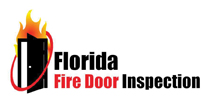 Update Your Condominium with the Florida Life Safety Code
Update Your Condominium with the Florida Life Safety Code
By Ben Khafed, CFDAI
Welcome back, all board members. Now is the time to get your building up to date with the Florida Life Safety Code, which was implemented on January 1, 2019, for all Florida existing condominiums to retrofit their fire sprinkler systems and maintain compliance in fire prevention measures. It also requires an annual inspection report on all fire doors and means of egress. An expert inspector will provide a thorough inspection of all the doors in the building to ensure they are safe and comply with the NFPA code. In addition, an expert inspector will prepare a detailed report on the condition of the fire door on your facilities. The inspection should be conducted in accordance with NFPA 80, 101, 105, and the Florida fire prevention code, and the inspection should identify code compliance violations and related legal obligations.
For more information on Florida Fire Door Inspection, call (813) 369-0897 or (727) 488-7574, visit FloridaFireDoorInspection.com, or email FloridaFireDoorInspection@gmail.com.
 Budget Season Starts
Budget Season Starts
By Jeff Musselman, Vice President
Fall marks the return of many residents to their winter homes in Florida as well as the start of budget season. Preparation is critical to the budgeting process, which includes many factors beyond the typical, reoccurring expenses of an association. The board and management should review reserve contributions—actual versus reserve plan recommendations. In addition to this funding review, they should study the plan to ensure it supports the near- and long-term vision for the community. This year it’s critical to look closely at wages for your association’s staff. Hourly wages in the retail and service industries have significantly increased during the last year and, as the labor market tightens, that trend is expected to continue. Your management company can assist you in analyzing the market so you can develop a solid 2020 budget.
For more information on FirstService Residential, call (305) 255-3000, email Jeff.Musselman@fsresidential.com, or visit www.fsresidential.com.
 Changes in Official Records Requirements
Changes in Official Records Requirements
By Katrina M. Sosa, Senior Associate at Haber Law
As we welcome back our snowbirds for the final stretch of the year, it is a perfect time to get them up to speed on this year’s community association legislative updates. This year, the requirements set forth in the official records statutes for condominiums and cooperatives, Sections 718.111(12) and 719.104(2), Florida Statutes, saw some changes.
In particular, the time to fulfill official records requests submitted by members to the association has been extended from 5 working days to 10 working days after receipt of a written request by the board or its designee.
Moreover, condominium associations are now required to permanently maintain specific documents from the inception of the association. Prior to this year’s legislative session, associations were required to maintain these same records for at least seven years. For a list of these records, make sure to review Section 718.111(12)(a)1-6, Florida Statutes.
For more information on Haber Law, call (305) 379-2400, email ksosa@haber.law, or visit www.haber.law.
 Hassle-free Stay in Paradise
Hassle-free Stay in Paradise
By Kaylee Tuck, Esq.
Welcome back, snowbirds! You are such an important part of our bustling economy, and we’re glad to have you here. Below are five tips for a worry-free departure from up north and a hassle-free stay in paradise:
- Alert your credit card companies and banks of where you are going and for how long to avoid any flags on your accounts.
- Restart utilities to avoid any delays. Air conditioning is a year-round commodity in Florida!
- Restart cable and internet services. We’re in the midst of football season, and you don’t want to miss a second of it!
- Let your local police department up north know you will be gone. Many local agencies allow you to file a form letting them know how to reach you in case of an emergency.
- Let your neighbors up north know you will be leaving, and leave contact information so they can get in touch with you.
For more information on Henderson, Franklin, Starnes & Holt P.A., call (239) 344-1164 or email kaylee.tuck@henlaw.com.
 J.R. Frazer Inc.
J.R. Frazer Inc.
By Sundeep Jay
Welcome back, snowbirds. For those residents who didn’t leave, we’re glad that you are still here in sunny Florida. Your association is most likely in the process of creating next year’s financial budget. If your association will be ordering an update to your reserve study, we highly recommend gathering any invoices, contracts, and/or any changes that might have occurred since your last reserve study update. Though a reserve analyst can plug market numbers into your reserve study, a better number to use is actual costs that the association has incurred. If your association has not already created a folder called “reserves,” we recommend creating one. In between reserve study updates, whenever an asset is replaced or a building painted, it is a great idea to place any invoice/contract in a folder called “reserves.” This way, when a reserve update is ordered, all of the information is present in one place to provide to your reserve analyst.
For more information on J.R. Frazer, call (561) 488-3012, email JRFrazerENT@aol.com, or visit www.JRfrazer.com.
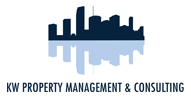 What Returning Snowbirds Must Know
What Returning Snowbirds Must Know
By Rick Dingle, VP
Snowbirds are migrating south for the winter, and some are returning to homes or condominiums that have been unoccupied all summer. Here are some tips to make sure your Florida winter residence is ready for your return:
- Before heading south, notify your electric company, local water and sewer department, and association about the dates you will physically be there.
- Upon arrival, run water through all faucets to allow the pipes to empty and ensure they are working properly.
- Turn on all appliances and make sure they are operating properly.
- Change the A/C filter and allow it to run low to remove the humidity that has been trapped all summer.
- Inspect the interior and exterior for mildew, water damage, and structural damage.
These simple steps will go a long way toward ensuring your winter getaway is as stress-free as possible.
For more information on KW Property Management & Consulting, contact Rick Dingle at (305) 476-9188, rdingle@kwpmc.com, or visit www.kwpmc.com.
 Community Waterways Are Fragile; Inspect to Avoid Problems
Community Waterways Are Fragile; Inspect to Avoid Problems
By Stuart Fischer
It’s quite possible that board members could return to their association communities and view considerable changes to what once were beautiful waterway views.
With the heavy rainy season, shoreline erosion has become more noticeable. There is very little, if any, water flow, resulting in a higher algae growth.
These are among the problems that can surface if these waterways are not properly managed and periodically inspected. The results can be devastating, causing these vistas to become eyesores and unhealthy habitats for wildlife.
Association boards should look for the following:
- Identify non-native plants and have them removed in favor of native plants that provide important nutrients for fish and other wildlife.
- If there is little, if any, water flow, consider dredging the lake/pond bottoms, a strategy that will enhance water movement. Consideration should also be given to installing aeration which, in addition to being attractive, also aerates and “moves” water.
- Shoreline erosion is dangerous and can result in injuries to residents and those operating heavy equipment. We recommend ShoreSOX® and DredgeSOX® as the most cost-effective and efficient systems to restore eroded shorelines.
- The rainy season can result in the hatching of mosquitoes and midges. Steps should be taken to eliminate these pesky and, at times, dangerous mosquitoes.
With offices throughout Florida, Lake and Wetland Management can serve all of your environmental needs. Please call 855-888-LAKE (5253) or visit www.lakeandwetland.com for more information.
 Ensure Your Asset Is Still Intact
Ensure Your Asset Is Still Intact
By Robyn A. Rocco, VP
Welcome back, snowbirds! The Florida sun has missed you. Here are a few things you should check on to ensure your asset is still intact. Upon leaving, we always recommend that owners take a look at the exterior of their unit and report any cracks or damages that may have been missed and report them to management. Upon returning, you can check that items were taken care of or reexamined if deferred. Also, when you leave, consider turning water off at the meter; when turning it back on, make sure all toilets are flushing and not running. We also tell owners when departing to unplug any major appliances and the water heater. This is to protect them from power surges during our summer storms and prevent damage from the freezer defrosting or flood from a faulty water line. It’s also recommended to leave your AC on 78 and humidifier at 50 percent. Check for any mold, mildew, or water intrusion upon your return. Keep an inventory list of valuables and check the unit upon arriving for any signs of theft or entry.
For more information on Landex Resorts International Inc., call (239) 369-5848, email info@landexresorts.com, or visit landexresorts.com.
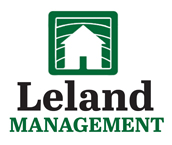 Making the transition: welcoming snowbirds back to your association
Making the transition: welcoming snowbirds back to your association
By Diane Braswell
As northern states welcome the fall and winter seasons, Florida welcomes the return of snowbird season. Each year our state population increases by five percent as an estimated one million snowbirds take up residence between October and April. Many of these seasonal residents own or rent property in HOA and condominium associations throughout the state, making it necessary for permanent residents, boards, and property managers to adjust to accommodate the influx of residents.
To help make this transition, associations should consider publishing a community newsletter or sending an eBulletin that provides helpful reminders for seasonal residents—for example, to update mailing information with the association’s management company, to ensure access codes for gates or amenities are active, and to attend any upcoming meetings or events. The board should also expect an increase in attendance at meetings and an uptick in requests for architectural review.
Communication is key, and we’re here to help. Learn more about our interactive community websites and advanced communication strategies at www.lelandmanagement.com/contents/websites.
For more information on Leland Management, call (888) 465-0346 or visit www.LelandManagement.com.
 Heavy-Duty Kayak Storage Racks
Heavy-Duty Kayak Storage Racks
By James Harrison
With the influx of snowbirds this winter, monetize your waterfront storage with Lesstor KS Kayak Storage racks. Our racks are commercial-grade and warrantied for life. Lesstor Racks are designed with an eco-friendly (60 sq. ft.) footprint, are maintenance free, have rolling arms, and are free-standing (no permit needed!). Follow these tips for maximum benefit:
- Location is Key—Enable easy removal to water and retrieval to rack.
- Fast Dry—Always store kayaks, canoes, and SUPs upside down for water drainage.
- Long-term Storage—Cover tenant equipment to prevent UV penetration.
- Avoid Combo Locks—Avoid using combination locks. Keys are best. Never use oil, only silicone.
- Ancillary Items—Always store paddles and life jackets inside premises.
- Monetize!—Lease per-unit storage and convert each Lesstor rack into a profit center. KS-12 and KS-6 racks available.
For more information, call us today to secure your Lesstor Kayak Storage Rack at (954) 658-7600 or email lscap@lesstorstorageracks.com.
 Ensure Proper Operation of Your Windows and Doors
Ensure Proper Operation of Your Windows and Doors
By Nate Yoder
Welcome back to paradise! To enjoy all of that fresh Florida air and sunshine, we recommend that you open and close your windows and doors several times to ensure proper operation over the season. If you are having an issue with either a window or sliding glass door, contact your association maintenance person or window contractor for assistance. Never spray WD-40, silicon, or other lubricant on your sliding glass rollers as this will cause them to collect/attract more dust, sand, and dirt, making the issue worse. We recommend that you hire a window cleaning service to wash and clean the interior and exterior of your windows and doors (especially in a condominium). If opting to do it yourself, be extremely careful and practice safety as you do not want to take any chances of losing your balance and falling out of an opening or having a tilt-in-window sash fall on you! Enjoy your season!
For more information on Mullet’s Aluminum, call (941) 371-3502 or visit www.mulletsaluminum.com.
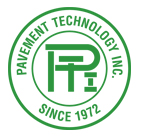 Assess the Status of Your Roads
Assess the Status of Your Roads
By Chris Evers
Roads are one of the last assets HOAs think about when it comes to preventive maintenance. However, doing a quick assessment at the end of the year is a good idea so you can relax and enjoy your time back in the Florida sun!
- Is there any major change or rapid deterioration occurring with the asphalt?
- If so, look for obvious culprits: irrigation leaks, tree roots, construction traffic, previous patching. Such underlying issues need to be addressed prior to making road repairs.
- If nothing jumps out, you may have a sub-surface issue that will require analysis by your engineer or property manager.
- Now look for slower moving deterioration—things such as cracking, loss of aggregate, or subtle changes in the asphalt’s appearance.
After assessing the status of your asphalt roads, research how long it’s been since the pavement was resurfaced and what types of preventive maintenance plans are available. Remember, good roads cost money, but bad roads cost more!
For more information on Pavement Technology Inc., visit www.pavetechinc.com.
 Enjoy Your Winter in the Sun
Enjoy Your Winter in the Sun
By Mariann Gerwig, CGC, HI, CFCAM
Welcome back to your southern home. We are sure that those of you who have been doing this seasonal transition for years are aware it is so different from just going on vacation. In the past, I have written about checking major building-wide care and maintenance, but it is just as important to make a full inspection of your home (single-family home or a condominium unit).
Some of the major things to do right away are the following:
- Inspect your heating and cooling units (and filters) to ensure they are working properly.
- Make sure your sinks, toilets, showers, and hot water heaters are not showing signs of leaks and are working and draining properly.
- Do a complete walkthrough looking at your floors, walls, and ceilings for signs of water damage.
- Make sure that your windows and sliding doors are working properly and do not need maintenance.
- Homeowners, make sure you do not forget to check attic spaces. Unit owners should also check all storage spaces they may have that are not located directly in your unit.
Your board of directors and property manager probably inform you by newsletters or emails about any major building maintenance and repair that has been done, is ongoing, or planned for the near future.
With all that done, you will have the peace of mind to enjoy your winter in the sun!
For more information on Promar Building Services LLC, call (561) 598-4549 or email Mgerwig@promarbuilding.com.
 You’re Back!
You’re Back!
By Judith Duncan
You’ve survived the summer and now you’re back just in time to approve the new budget. It’s time to review the current operating policies to determine if changes or updates are needed for the coming year to ensure compliance with the statutes that may have changed or simply to make a needed change in the processes.
Aside from that, it’s time to pull out the project wish list that’s been budgeted for or your reserve study and begin planning the schedule for the routine and large-scale maintenance projects for next year. By publishing a calendar of both the routine (i.e., pressure washing, mulching, planting) and large-scale projects (paving, painting, roofing) that are to be done, you’re putting the residents on notice of what to expect for the near future for their home and community.
A busy few months prior to the holidays. Welcome back!
For more information on RealManage, email judith.duncan@realmanage.com or call (407) 839-6090 ext. 1709.
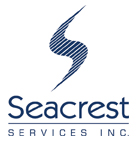 Make a Preventive Maintenance Checklist
Make a Preventive Maintenance Checklist
By Lindsay Heysler
Ready to lock your deadbolt and head south for the winter? Dreaming of enjoying warm weather, palm trees, and your toes in the sand? Before you hit the road and head south, consider making a preventative maintenance checklist for your home. Here are five maintenance tips to keep your home safe for the winter:
- Have a licensed professional inspect your heating system before the cold weather begins. Be sure to turn off your home’s water supply and drain the pipes.
- Inspect your roof, chimney, and clear your gutters from all debris.
- Remove any dead or overhanging tree limbs.
- Have your mail forwarded and stop your newspaper delivery, this can help to keep your home from looking vacant.
- Arrange for snow removal from your driveway or walkway.
Now that your home is winter-ready you can have peace of mind and enjoy your time here. Welcome back!
For more information on Seacrest Services, call (561) 656-6354, email lrheysler@SeacrestServices.com, or visit www.SeacrestServices.com.
 Florida Legislature Passes Assignment of Benefits Insurance Claim Reform
Florida Legislature Passes Assignment of Benefits Insurance Claim Reform
By Susan C. Odess
A new law that is now in effect has brought dramatic changes to the Florida laws governing assignments of post-loss benefits under property insurance claims to those providing services to repair, restore, protect, or replace the property.
The AOB process enables property owners to sign over their claim benefits to contractors, which are then able to pursue payments directly from the insurers.
The new law limits attorneys’ fees in AOB lawsuits filed by contractors against insurers. It also enables insurance companies to offer lower-cost policies that restrict or do not allow for assignments of benefits.
Commercial and residential property owners in Florida should consult with highly experienced insurance attorneys and public adjusters when considering an assignment of benefits to a contractor after the filing of a claim. The new law is bringing significant changes to the process, and they should rely on the guidance of qualified professionals to make the best decisions about their specific claim.
For more information on Siegfried Rivera, call (800) 737-1390 or visit www.siegfriedrivera.com.
 Following Hurricane/Rainy Season, Boards Should Continually Inspect Shorelines for Erosion Damage
Following Hurricane/Rainy Season, Boards Should Continually Inspect Shorelines for Erosion Damage
By Ryan G. Leeds, Managing Partner of SOX Erosion Solutions™
As Florida’s hurricane season comes to a close, our hopes are that most of the Sunshine State emerges safe and without damage. Unfortunately, even without hurricane damage, it’s likely that shorelines in community associations have eroded due to heavy rains and drastically fluctuating water levels. Erosion causes collapsed land, resulting in dangerous conditions for residents and workers using heavy equipment. Television and Internet cables are exposed and damaged, resulting in expensive repairs.
Community association boards should regularly inspect shorelines for damage and consider repairs. Many communities are turning to ShoreSox™ and DredgeSox™, our patented and affordable shoreline restoration solutions that meet all Best Management Practices.
The process involves filling a specialized mesh sheet with rich organic sediment dredged from lake bottoms or imported soils and fill. The SOX system is then secured to the shoreline using a patented anchoring array, thus re-creating the original and now-living lake bank. This innovative product allows us to promote nature’s natural ability to stabilize the shoreline by planting and/or sodding directly through the SOX mesh and establishing healthy, rooted vegetation.
For more information on SOX Erosion Solutions, call (833) 222-4769 or visit www.soxerosion.com.
 Roof Inspection Critical for Returning Residents
Roof Inspection Critical for Returning Residents
By Casey Crowther, President
When seasonal residents return for the winter, their primary focus is on the inside of their homes. They’ll make sure the A/C system, appliances, and smoke alarms are in working order, and probably will throw linens in the washer and restock the fridge. They’ll restart a newspaper subscription and make sure cable, telephone, and Internet services are restored. Then, they’ll enjoy life as a snowbird!
But they forgot to have someone check their roof. For the past six months, roofs have been exposed to dangerous UV rays, high temperatures, and powerful thunderstorms. Florida’s harsh weather extremes are the leading cause of roof damage across the Sunshine State.
Property managers and community associations should either hire a certified, experienced inspector to provide detailed reports or provide residents with a vetted list of reliable local inspectors. Every home, condominium, apartment building, and business should have its roof inspected annually by a professional to catch potential issues before they become a problem.
For more information on Target Roofing & Sheet Metal, call 239-334-7496 or visit TargetRoofers.com.
 What Happened While You Were Away?
What Happened While You Were Away?
By Thomas Morgan
As many of you come back to Florida this time of year, it is important to assess what may have occurred in your absence. Our firm generally suggests residents check for several things upon their return:
- Any water stains or discoloration on ceiling or walls, even though no active water is seen. This may be a sign of a small leak in plumbing or even from another unit that needs to be addressed before it becomes more serious
- Standing water around doors or on balconies, as this could be early signs of stucco/plaster deterioration
- Check areas around your dishwasher and washing machine after first use upon return to ensure that there are no leaks in water lines
- Ensure that all windows and doors easily open and close
Make your property manager aware if you detect any of these issues. Our firm can always assist with additional inspections and assessments at no charge.
For more information on The Morgan Law Group, call (305) 569-9900, email tmorgan@morganlawgroup.net, or visit www.policyadvocate.com.
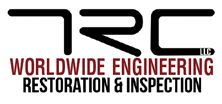 Complete a Moisture Survey
Complete a Moisture Survey
By Scott A. O’Connor
Welcome back to the warm weather of South Florida! Hopefully, your HOA has kept a good watch over your condominium while you were away. However, sometimes events happen, like a hurricane for instance, that can cause damage to your property. Often the damage done by a significant weather event can go undetected for weeks or months. This is the case with water damage that is caused when high velocity winds drive rain through micro-cracks and small openings in the building envelope, allowing the moisture to get into wall and ceiling spaces. This can lead to mold development or other damage. A moisture survey of the interior of your building can detect the presence of moisture without damaging the interior finishes. Ask your HOA if they have recently contracted to have a moisture survey completed on your building; if not you may want to suggest it.
For more information on TRC Worldwide Engineering, Restoration & Inspection LLC, call (954) 484-7777, email soconnor@trcwww.com, or visit www.restorationTRC.com.




